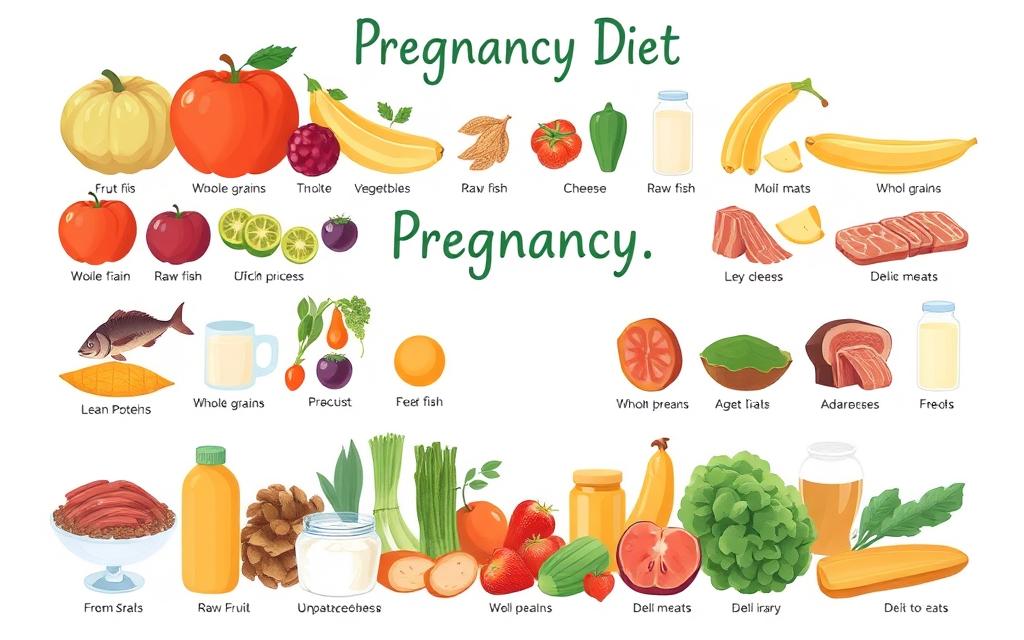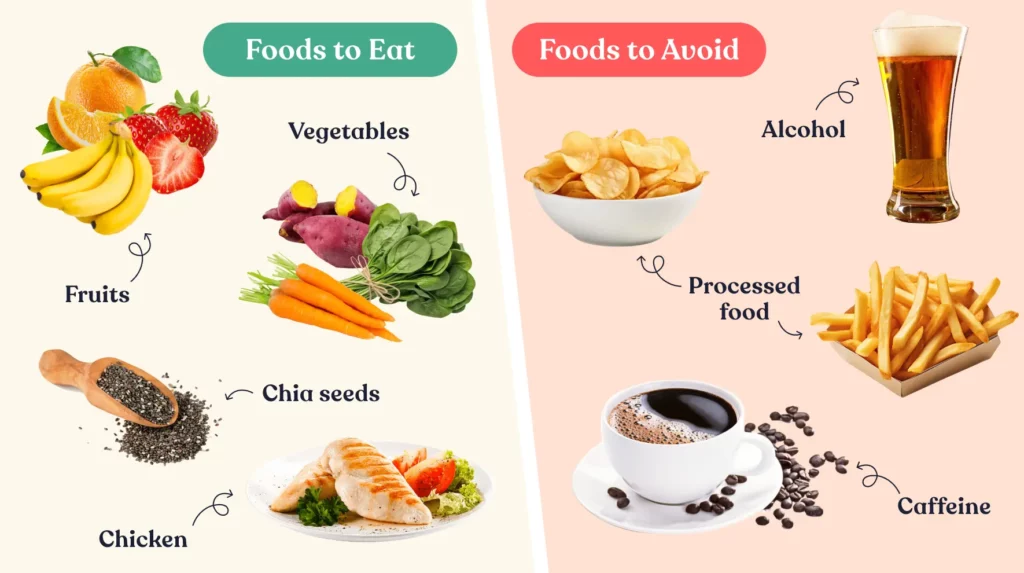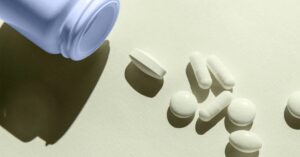When you're expecting, the responsibility for the growing life inside you can feel overwhelming. Friends, family, and strangers all offer advice. Your body is a sanctuary, and prenatal nutrition is key. It's not just about what you eat, but also what you avoid, especially in the Foods to Avoid During Pregnancy in the first trimester.
Maybe you love starting your day with coffee. But research shows caffeine can cut blood flow to the fetus. The American College of Obstetricians and Gynecologists says to limit caffeine to 200 milligrams a day. This is a sacrifice that benefits your baby.
Managing your pregnancy diet means avoiding risks in unexpected places. From deli counters to sushi bars, and even your fridge, food safety is crucial. Avoid unpasteurized dairy, certain seafood, and unwashed fruits. Steer clear of alcohol and some fruits to protect your baby.
Fresh pineapple might brighten your day, but it's not safe in early pregnancy. Unripe papayas also pose risks. But, learning what to eat and avoid is crucial for a healthy start.
Following advice, like eating two portions of safe fruit daily, guides you. Choose fruits like kiwifruits and tart cherries for better sleep. With informed guidance, like from a trusted healthcare source, you're not alone.
Every meal and snack is a way to show love to the life growing inside you. By carefully choosing what to eat, you show your love and care. This act of caution is a powerful expression of motherly love.

Explore Prenatal Nutrition: The Basics
A strong foundation for prenatal nutrition is about knowing what a healthy diet for pregnancy is. It's about the essential nutrients needed for fetal growth. The right mix of these nutrients in the first trimester is key for a healthy pregnancy and baby growth.
What Constitutes a Healthy Pregnancy Diet
In the first trimester, it's important to eat foods that nourish you and your baby. A good diet includes fruits, vegetables, whole grains, lean proteins, and dairy. Foods rich in iron like spinach and omega-3 fatty acids from salmon are also good. Adding prenatal vitamins with folic acid and iron is crucial for your health and your baby's development.
The Essential Nutrients for Fetal Development
During the first trimester, focus on folic acid, iron, calcium, and omega-3 fatty acids. Folic acid helps prevent neural tube defects. Iron supports your increased blood volume. Calcium is important for your baby's bones, and omega-3 fatty acids help with brain development.
| Nutrient | Source | Benefit |
|---|---|---|
| Iron | Spinach, red meat, lentils | Supports increased blood volume |
| Folic Acid | Leafy greens, fortified cereals | Helps prevent neural tube defects |
| Calcium | Dairy products, fortified plant milk | Essential for fetal bone development |
| Omega-3 Fatty Acids | Fish, flax seeds, walnuts | Crucial for brain development |
Adding these nutrients to your diet is vital for your baby's health. It also helps prevent nutritional deficiencies in early pregnancy. A balanced diet in the first trimester supports your body and your baby's development.
Foods Pregnant Women Should Avoid in the First Trimester
Starting your pregnancy journey means learning about food safety during pregnancy, especially in the first trimester. Knowing about risky foods during pregnancy helps keep you and your baby healthy.
In the first trimester, it's important to avoid certain restricted foods to protect your baby's growth. Avoid unpasteurized dairy products like soft cheeses because they can have harmful bacteria like Listeria. Also, steer clear of deli meats and pre-made pâtés unless they're heated well before eating.
- Raw or undercooked meats can have harmful pathogens that risk your pregnancy.
- Seafood with high mercury, like king mackerel and swordfish, should be avoided because it can harm your baby's nervous system.
- It's best to limit caffeine to 200 milligrams a day, which is about one espresso or two cups of instant coffee.
Eating heart-healthy foods during pregnancy is good for your heart and your baby's growth.
| Food Item | Reason for Avoidance | Recommended Action |
|---|---|---|
| Unpasteurized Dairy Products | Risk of Listeriosis | Avoid/Consume only pasteurized versions |
| Deli Meats, Pre-made Pâtés | May contain Listeria or other bacteria | Heat to steaming hot before eating |
| High Mercury Fish (e.g., Swordfish) | High mercury levels can damage the fetal nervous system | Avoid entirely during pregnancy |
| Raw or Undercooked Meat | Potential exposure to Toxoplasmosis and other bacteria | Cook meats thoroughly to safe temperatures |
| Caffeinated Beverages | High intake linked to miscarriage risks | Limit to 200mg/day |
Your food choices are key to avoiding risky foods during pregnancy. Sticking to guidelines on restricted foods helps keep your baby safe. Talking to your healthcare provider often helps make sure you're eating right for you and your baby.
The Truth About Caffeine: Moderation is Key
When it comes to caffeine and pregnancy, knowing how much is okay is key. A morning coffee might be a must, but think about how it affects your baby. This is especially true with other morning sickness foods and food safety concerns.
Caffeine can make blood vessels in the uterus and placenta smaller. This might cut down on blood to the fetus and affect growth. It could also mess with hormones, leading to obesity and heart problems for the baby later on.
The Effects of Caffeine on Fetal Growth
The Norwegian Mother, Father, and Child Cohort Study looked at over 71,000 families. It found links between caffeine and issues like attention problems and hyperactivity. But, genetic studies later showed these might not be direct causes. Still, it's important to keep caffeine intake low.
The American College of Obstetricians and Gynecologists says pregnant women should have less than 200 milligrams of caffeine a day. This helps avoid risks like miscarriage or early birth.
Alternatives to Your Daily Coffee Fix During Pregnancy
To follow food safety rules, try decaf coffee. It has much less caffeine than regular coffee. Other safe choices include:
- Green tea
- Instant coffee
- Lemonade
- Coconut water
- Yogurt drinks like buttermilk or lassi
- Nutritive herbal infusions like kokum juice or coriander seeds water
These options cut down caffeine and help with morning sickness. They also keep you hydrated and nourished.
It's crucial to control caffeine intake during pregnancy. By picking safe options and following guidelines, you can protect your health and your baby's. This way, you can enjoy your daily habits without overdoing it on caffeine.
Alcohol and Pregnancy: Understanding the Risks
It's vital to avoid alcohol during pregnancy for the health of both the mother and the unborn child. This aligns with food safety and health ethics. Knowing the risks of alcohol and pregnancy is key.

Knowing the dangers of alcohol during pregnancy is crucial. It helps prevent birth defects and brain issues. The U.S. Surgeon General and other top health groups say there's no safe amount of alcohol for pregnant women.
Between 2018 and 2020, 13.5% of pregnant adults in the U.S. drank alcohol. 5.2% binge drank. This is a 2% increase, showing a need for better health messages and support.
| Country | Percentage of Pregnant Women Who Use Alcohol | Estimated Impact of FASD |
|---|---|---|
| United States | 13.5% | 5% (school-aged children potentially affected) |
| Canada | 10-15% | 4% (of Canadian population affected) |
| UK (NHS Recommendation) | No Safe Amount | Emphasis on Complete Abstinence |
Research shows prenatal alcohol use can lead to preterm birth and small babies. This makes avoiding alcohol a big responsibility.
Groups facing more challenges, like BIPOC communities, need better prenatal care. This is because they face higher risks from alcohol during pregnancy. It's important to offer prenatal care and education that meets their needs.
Following food safety and prenatal health guidelines is key for a healthy pregnancy. Avoiding alcohol can greatly reduce the risk of FASDs. This supports a healthier future for the next generation.
Risky Foods During Pregnancy: Listeria Prevention
Knowing about food safety during pregnancy is key. Listeriosis, caused by listeria bacteria, can harm pregnant women. It's important to know which foods to avoid and choose safer options for prenatal nutrition.
Listeria's Impact on Pregnancy and Safe Alternatives
Listeriosis can cause serious problems like miscarriage, stillbirth, and early birth. To prevent this, eat pasteurized dairy and cook meats well. Avoid deli meats and soft cheeses unless they're pasteurized.
Recognizing Foods With High Listeria Risk
Ready-to-eat foods, raw or undercooked seafood, meats, and poultry, and unpasteurized dairy are high-risk. Always check labels for pasteurization and cook meats to safe temperatures.
By focusing on listeria prevention, you can keep yourself and your baby safe. Here's a list of risky foods and safer choices:
| High-Risk Food Items | Safer Alternatives |
|---|---|
| Unpasteurized soft cheeses | Pasteurized hard cheeses |
| Raw or undercooked seafood | Cooked fish and shellfish |
| Uncooked meats or poultry | Well-cooked meats and poultry |
| Raw or lightly cooked eggs | Fully cooked eggs |
| Pre-packaged salads | Freshly washed, homemade salads |
| Unpasteurized milk and dairy products | Pasteurized milk and dairy product |
Navigating Seafood Choices: PCBs and Mercury Concerns
Eating safe seafood during pregnancy means knowing about PCB and mercury exposure. Seafood is good for you, especially for omega-3 fatty acids. But, some fish have harmful stuff. So, picking the right fish is important for your baby's health.
The Seafood to Enjoy and the Ones to Avoid
Seafood is great for you, but not all is safe for pregnant women. The FDA and EPA have guidelines to help. They say fish like salmon, sardines, and trout are good. These fish have low mercury and lots of omega-3 fatty acids.
But, avoid or limit fish like king mackerel, shark, swordfish, and orange roughy. They have too much mercury.
Benefits of Omega-3s for Pregnant Mothers and Their Babies

Fishes with omega-3 fatty acids are safer and good for your baby's brain and eyes. They also help your baby's cognitive skills and lower inflammation in you.
Discover how to add nutrient-rich foods like those here to your diet. They're part of a healthy approach to safe seafood during pregnancy and prenatal nutrition.
| Fish Variety | Mercury Content (mcg/g) | Recommended Intake |
|---|---|---|
| Salmon | Less than 0.15 | Up to three 4-ounce servings per week |
| Swordfish | Over 0.46 | Avoid during pregnancy |
| Canned light tuna | Varies | Two to three 4-ounce servings per week |
| King Mackerel | High | Avoid during pregnancy |
Fish is still a great source of omega-3 fatty acids. But, it's important to balance its benefits with risks like PCB and mercury exposure. Always check the latest advice from trusted sources to keep you and your baby safe and healthy.
Raw Foods and Pregnancy: A Delicate Balance
Adding raw foods to your pregnancy diet can be tricky. They're fresh and full of nutrients, but they might have harmful bacteria like salmonella or E. coli. These can cause serious stomach problems and harm your baby.
It's important to know which raw foods are safe and which to avoid. For instance, foods like mousse, tiramisu, and eggnog have raw eggs, which are risky. Raw cookie dough and some salad dressings also have risks if they contain raw eggs.
To stay safe, choose foods with pasteurized or cooked eggs. Make sure to cook all meats well and pick pasteurized products over raw ones. For more info on foods to skip, check out this guide on unsafe foods during pregnancy.
Here are some safe ways to add raw foods to your pregnancy diet:
- Always wash fruits and vegetables well under running water.
- Keep raw food separate from cooked and ready-to-eat foods to avoid contamination.
- Use different cutting boards and knives for raw foods.
- When eating out, make sure salads and raw fruits are clean and prepared safely.
While raw foods are good for a healthy diet, your main goal in pregnancy is to keep yourself and your baby safe. Eating more cooked foods and knowing the risks of some raw foods are key to a healthy diet during pregnancy.
Follow these tips to enjoy a variety of foods in your pregnancy diet safely. This way, you and your baby get the nutrients you need without risking food safety.
The Hidden Dangers of Unpasteurized Dairy Products
Unpasteurized dairy products can be risky during pregnancy. They might have listeria, a harmful bacteria. This bacteria can harm both the mother and the baby. It's important to know about these risks to keep your diet safe during pregnancy.
How Listeria Can Hide in Cheese and Milk
Keeping listeria away is key to food safety during pregnancy. This harmful bacterium loves moist places. It can hide in soft cheeses and unpasteurized milk.
Products like Brie, Camembert, and some Mexican cheeses are at higher risk. These cheeses are often made from unpasteurized dairy products. Even though listeriosis is rare, it can cause serious problems like miscarriage or stillbirth.
Safer Cheese Choices for Expectant Mothers
Choosing the right cheese is important for pregnant women. Cheeses made from pasteurized milk are safer. In the U.S., many cheeses like mozzarella, cheddar, and cottage cheese are safe.
By choosing safer cheeses, you can enjoy dairy while avoiding risks. Knowing about the dairy you eat is crucial. It helps keep you and your baby healthy.
The Risks of Raw Meat and Eggs
It's important to focus on prenatal nutrition and food safety during pregnancy. Eating raw meat and raw eggs can lead to harmful bacteria like salmonella and E. coli. These pathogens can harm a pregnant woman's health and her baby.
Pregnant women should avoid raw or undercooked animal products. While these foods might be okay for others, they're not safe for pregnant women. Cooking these foods thoroughly kills harmful bacteria, protecting your baby.
- Fully cooking meat to safe internal temperatures ensures that harmful pathogens are killed, making the food safe for consumption.
- Eggs should be cooked until the yolks and whites are firm, not runny, to avoid the risk of salmonella poisoning.
Being careful with food safety is crucial. Avoiding raw meat and eggs helps prevent infections that could complicate your pregnancy or harm your baby. It's wise to choose safe and healthy food options for you and your child.
Remember, your dietary choices play a pivotal role in supporting your baby's growth and development. Prioritizing cooked over raw food during pregnancy is a practice endorsed by food safety experts globally.
To ensure optimal prenatal health, follow these safety tips. Also, talk to a healthcare provider to create a diet that fits your nutritional needs during pregnancy.
Fruits and Vegetables: The Cleanliness Factor
Expectant mothers must be very careful about food safety, especially with fruits and vegetables. Keeping these foods clean is key to preventing toxoplasmosis, a serious infection. Toxoplasmosis can come from contaminated soil on fruits and vegetables.
To lower the risk, only eat clean fruits and vegetables. Wash all produce under clean water, even if you plan to peel them. Using a clean produce brush can also help remove harmful germs.
Toxoplasmosis in Produce and How to Avoid It
Fruits and vegetables that touch soil can carry Toxoplasma gondii. Washing them well and avoiding unripe papaya and unpasteurized juices helps. This keeps you safe from toxoplasmosis and other harmful germs.
Debunking Myths About Fruit Consumption During Pregnancy
Some think eating pineapple and papaya can cause miscarriage because of their enzymes. But eating them in moderation is safe and good for your baby. Always talk to your doctor about what's best for you.
The secret to a healthy pregnancy diet is eating clean fruits and vegetables safely. This is crucial for avoiding food illnesses and keeping you and your baby healthy during these important months.
Morning Sickness Foods: Foods That May Exacerbate Symptoms
Understanding which foods to avoid is key when dealing with morning sickness. It affects many pregnant women, causing everything from mild nausea to severe vomiting. To help, focus on your pregnancy diet and food safety.
While there's no one-size-fits-all solution, some foods can make nausea worse. Avoid foods that are very seasoned, spicy, or too fatty. Instead, choose bland, easy-to-digest foods to feel better.
- High-fat foods and greasy meals can worsen morning sickness.
- Spices might irritate your stomach, intensifying nausea.
- Sugary snacks may lead to spikes in blood sugar that could enhance your nausea.
Let's look at foods to avoid during morning sickness. Eating small, frequent meals and staying hydrated can help manage symptoms. This ensures you follow a safe and healthy pregnancy diet.
| Type of Food | Description | Reason to Avoid |
|---|---|---|
| Spicy Foods | Items with a lot of spices or heat | Can irritate the stomach and increase nausea |
| Fatty Foods | Greasy, high-fat meals | Harder to digest, prolonging stomach discomfort |
| High-Sugar Foods | Snacks high in sugar content | May cause sudden blood sugar spikes and crashes |
Avoiding these foods can help manage your symptoms and keep your pregnancy diet healthy. Remember, every pregnancy is different. Always talk to your healthcare provider about your diet.
For more tips on managing morning sickness through diet and food safety, check out health websites and talk to your healthcare team.
Sugar, Salt, and Pregnancy Diet: Finding the Right Balance
Managing your pregnancy diet means finding the right balance of sugar and salt intake. This is key for your health and your baby's growth. Too much sugar can lead to gestational diabetes, affecting 15% of pregnant women. Too much salt can raise blood pressure, making pregnancy harder.
Prenatal nutrition is about eating smart, not just more. Eating complex carbs and lean proteins helps control blood sugar and prevents weight gain. The foods you choose now affect your and your baby's health.
Here's a table with food choices that balance sugar and salt, ensuring a healthy diet for pregnant women:
| Food Category | Benefits | Examples |
|---|---|---|
| Complex Carbohydrates | Help regulate blood sugar levels | Whole grains, legumes, vegetables |
| High Fiber Fruits | Rich in vitamins, aids in digestion and prevents high blood sugar spikes | Apples, pears, berries |
| Protein-Rich Foods | Supports fetal development and maternal health | Lean meats, eggs, tofu, beans |
| Low-Sodium Options | Prevents water retention and high blood pressure | Fresh vegetables, unsalted nuts |
Avoid foods high in refined sugars and salt, like candy and fast food. These can harm your prenatal nutrition. Instead, choose fresh, whole foods for a balanced pregnancy diet. This keeps you and your baby healthy for a successful delivery.
Adding fruits like bananas to your diet is good. They're full of folate and vitamin C, important for your baby's growth. Eating the right amount of these fruits can help prevent developmental delays and improve health.
Talk to your healthcare provider before making any diet changes. They can help make sure your diet supports your prenatal health. Following these tips will help you keep a balanced diet during your pregnancy.
Food Safety Guidelines for Expectant Mothers
Following food safety guidelines is key during pregnancy. It keeps you and your baby safe. We'll cover how to handle and prepare food safely. This knowledge helps avoid foodborne illnesses and supports prenatal nutrition.
Best Practices for Handling and Preparing Food
Cleanliness is crucial when cooking during pregnancy. Always wash your hands before and after touching food. Clean surfaces and utensils to stop bacteria spread.
Cook meats to the right temperature. Beef needs to be at least 145°F, and poultry at 165°F. Store and reheat leftovers right to avoid spoilage. These steps help keep you healthy and reduce risks of toxoplasmosis and listeriosis.
Preventing Cross-Contamination in the Kitchen
Keep raw food, especially meats, away from cooked and ready-to-eat foods. Use different cutting boards for meats and veggies. Always clean surfaces that touch raw foods. Following these steps lowers the risk of harmful pathogens.
Knowing about prenatal nutrition is also important. For more info, check out this detailed guide on pregnancy nutrition. It gives tips on a balanced diet for your needs during pregnancy.
| Essential Nutrient | Recommended Daily Amount | Benefits During Pregnancy |
|---|---|---|
| Folic Acid | 400 mcg | Helps prevent neural tube defects. |
| Iron | 27 mg | Supports the baby's growth and development. |
| Calcium | 1000 mg | Essential for building strong bones and teeth. |
| Protein | 71 grams | Crucial for the growth of fetal tissue and brain. |
| Omega-3 Fatty Acids | 8-12 ounces of low-mercury fish weekly | Supports the baby's brain and eye development. |
Always talk to your healthcare provider about your diet. They can help make sure you're eating right for you and your baby. They'll give advice on food safety guidelines and the best pregnancy diet.
Also Read:
- How to Choose the Best Prenatal Vitamins for Your Pregnancy
- Best Safe Pregnancy Workouts for Every Trimester at Home
Conclusion:
Looking back, the foods you eat in the first trimester and beyond are key to your baby's growth. We've seen how a pregnancy diet full of nutrients is crucial. It must avoid risks like bacterial contamination or high mercury levels.
Food safety and choosing the right foods during pregnancy are very important. The Mediterranean diet, for example, has shown great benefits. It can lead to lower obesity rates in children and better health markers.
Understanding how different factors like ethnicity and socioeconomic status affect diet is vital. Changes that help your baby start even before you get pregnant. Eating more of the right foods and following diets like the Mediterranean can make a big difference.
Regular check-ups and following healthy diets can lead to better health for you and your baby. Studies show that eating well can even change how genes work in a positive way. This shows how important your diet choices are during pregnancy.
As you move forward, remember the importance of first trimester foods and the right prenatal nutrition. Avoiding foods you shouldn't eat during pregnancy is also key. This will help your baby have a healthy start in life.







